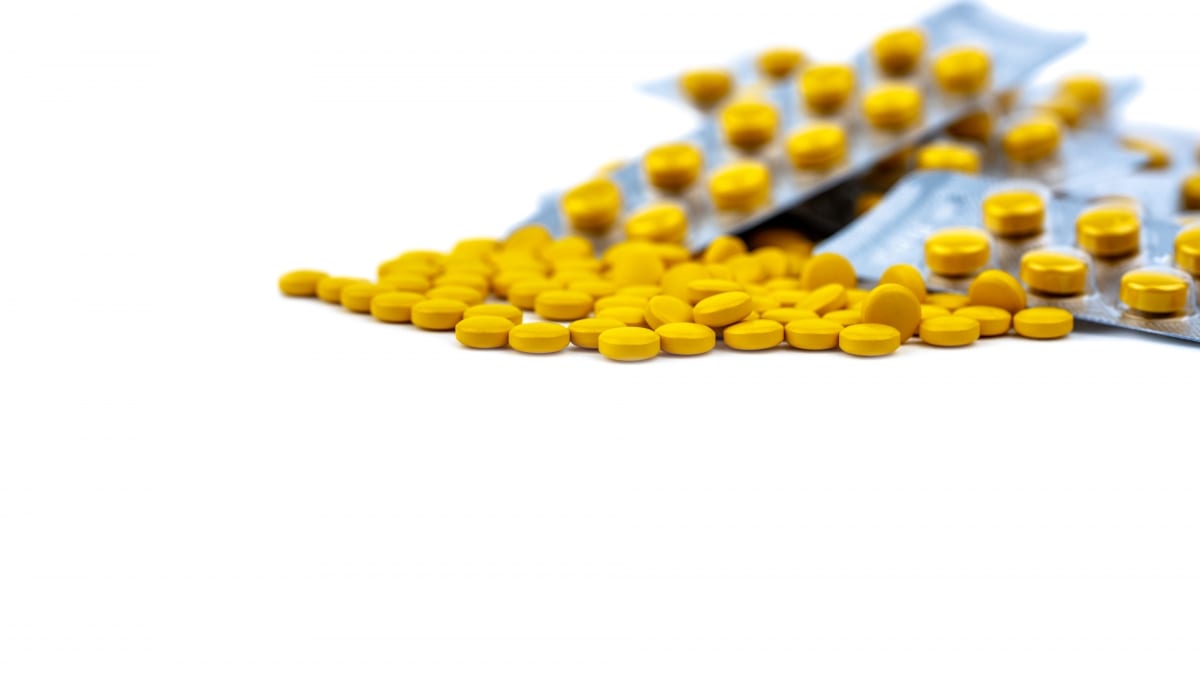Stress, illness and trauma are the chief causes of inflammation. Also, an unhealthy lifestyle and an unhealthy diet can contribute to bouts of inflammation. To remedy some of the instances of inflammation, doing exercise, eating anti-inflammatory supplements, managing stress and getting enough sleep work wonders. But for those who still need more help to keep their bouts of inflammation under control, the inclusion of supplements in the diet may be the answer. The following are six anti-inflammatory supplements that have been proven to work well at fighting inflammation.
1. Alpha-Lipoic Acid
Alpha-lipoic acid is a fatty acid the body produces to produce energy and enable metabolism. This fatty acid also contains antioxidant properties to prevent cell damage and to restore vitamin E, vitamin C and other antioxidants.
Although there are some conflicting studies that see no effect of alpha-lipoic acid on inflammation, multiple studies reveal that alpha-lipoic acid reduces the presence of anti-inflammatory markers CRP, IL-6 and TNF-α, ICAm-1 and others, and it notably reduces inflammation in people who have cancer, heart disease, liver disease, insulin resistance and other health conditions that promote inflammation.
Recommended dosage: 300–600 mg daily. No issues have been reported in people taking 600 mg of alpha-lipoic acid for up to seven months (11Trusted Source).
Who should avoid taking this supplement: Pregnant women
Known side effects: None when taking the recommended dosage. Diabetics will need to monitor blood sugar levels while taking this supplement.
TIP TO REMEMBER: Alpha-lipoic acid is a fatty acid and antioxidant that reduces inflammation caused by a variety of health conditions.
2. Curcumin
Curcumin, a component of the spice turmeric has been shown to be highly beneficial for overall health. This supplement reduces inflammation caused by cancer, heart disease, diabetes, rheumatoid arthritis, osteoarthritis, inflammatory bowel disease, etc.
One study revealed that curcumin was successful in reducing levels of inflammation markers MDA and CRP in people who had metabolic syndrome.
Another study involving 80 cancer patients reported a significant decrease in inflammatory markers in the group taking 150 mg of curcumin per day versus the control group. Also, the patients taking the curcumin experienced a more notable increase in their quality of life score than the control group.
Because curcumin is poorly absorbed in the body when taken by itself, it’s best to take it with piperine, an alkaloid found in black pepper, which helps the body absorb the curcumin better.
You may also want to try a Bioperine anti-inflammatory supplements to take with curcumin because Bioperine acts like piperine in the body.
Recommended dosage: 100–500 mg per day (when taken with piperine). One study reported that doses as high as 10 grams daily were safe but may irritate the stomach.
Who should avoid taking this supplement: Pregnant women
Known side effects: None when taking the recommended dosage
TIP TO REMEMBER: Curcumin is an anti-inflammatory supplement used to reduce inflammation caused by a variety of illnesses.
3. Fish Oil
Fish oil has omega-3 fatty acids DHA (docosahexaenoic acid) and EPA (eicosapentaenoic acid), which are beneficial to one’s health. However, fish oil is also great for fighting inflammation in people with cancer, diabetes, heart disease and other health issues.
DHA is a noted anti-inflammatory supplements such as TNF alpha and IL-6, lower cytokine levels and improve gut health. It may also decrease the inflammation and muscle damage that occur after exercise.
The inflammation marker IL-6 was 32% lower in the group taking 2 gm of DHA per day versus the control group in one study involving fish oil use.
However, there appear to be no significant improvements or changes in health in people who have atrial fibrillation or people who are healthy that take fish oil
Recommended dosage: 1–1.5 grams of fish oil daily—preferably the brands that are mercury-free.
Who should avoid taking this supplement: People on aspirin or blood thinners
Known side effects: Will thin the blood and intensify bleeding if taken at higher doses.
TIP TO REMEMBER: Fish oil supplements with omega-3 fatty acids significantly reduces occurrences of an improve inflammation caused by a variety of health conditions.
4. Ginger
Ginger root is often used for cooking when it is in a powder state. Ginger has also been known to treat morning sickness, nausea and indigestion.
What some people don’t know is the substance gingerol and zingerone found in ginger has anti-inflammatory properties and works wonders for reducing inflammation in people who have muscle soreness after exercise, breast cancer, diabetes, colitis or kidney conditions.
A study involving breast cancer patients revealed a decrease in inflammation markers CRP and IL-6 levels when they added a ginger supplement and exercise to their daily routine.
A study involving diabetic patients revealed a decrease in CRP, HbA1c and insulin levels when they added 1,600 mg of ginger to their daily routine.
Recommended dosage: 1-2 grams daily
Who should avoid taking this supplement: People on aspirin or blood thinners Known side effects: Will thin the blood and intensify bleeding if taken at higher doses.
TIP TO REMEMBER: Studies have proven that ginger reduces inflammation, muscle soreness and muscle pain.
5. Resveratrol
Resveratrol
is an antioxidant found in fruits with purple skin like grapes and blueberries,
peanuts and red wine. Studies have shown that resveratrol reduces
inflammation caused by insulin resistance, heart disease, ulcerative colitis,
gastritis and other health conditions.
Another study revealed a significant decrease in inflammatory markers, blood sugar and triglycerides in obese patients.
Red wine has a lot of health benefits, but not a significant amount of resveratrol needed to make a notable impact on inflammation. For instance, a person would have to consume 3 gallons of red wine daily to get the recommended dose of resveratrol (150 mg) needed to fight inflammation.
Recommended dosage: 150–500 mg daily
Who should avoid taking this supplement: People on blood thinners
Known side effects: Digestive discomfort may occur when taken at higher doses (5 grams per day).
TIP TO REMEMBER: Resveratrol is an anti-inflammatory supplements and improves many health conditions.
6. Spirulina
Spirulina is a blue-green alga that has antioxidant properties.
Studies have shown that spirulina acts upon inflammation markers to reduce inflammation and improve the immune system.
Although most research on the use of spirulina has been done with animals, there are some studies on spirulina involving elderly men and women that have shown spirulina to be effective against reducing inflammation, reducing anemia and improving immune function.
A study involving diabetic patients revealed a significant reduction in inflammation marker MDA when the patients took 8 gm of spirulina daily for a 12-weeks period. Their adiponectin (a hormone responsible for regulating fat metabolism and blood sugar) levels increased.
Recommended dosage: 1–8 grams daily
Who should avoid taking this supplement: People with immune system disorders or spirulina and algae allergies
Known side effects: None when taken as recommended unless you are allergic to spirulina.
TIP TO REMEMBER: Spirulina provides is an antioxidant that also makes it an anti-inflammatory supplements caused by some health conditions.
Keep These Tips in Mind When Using Supplements
If you are considering taking supplements, keep these three things in mind:
- Always purchase supplements from reputable companies.
- Follow all guidelines and dosage recommendations.
- Ask your doctor about using supplements if you are on medications and/or have certain medical conditions.
Anti-inflammatory foods are the best sources for anti-inflammatory agents. However, if you suffer from chronic inflammation, you may need to add anti-inflammatory supplements to your diet to get your inflammation under control.








